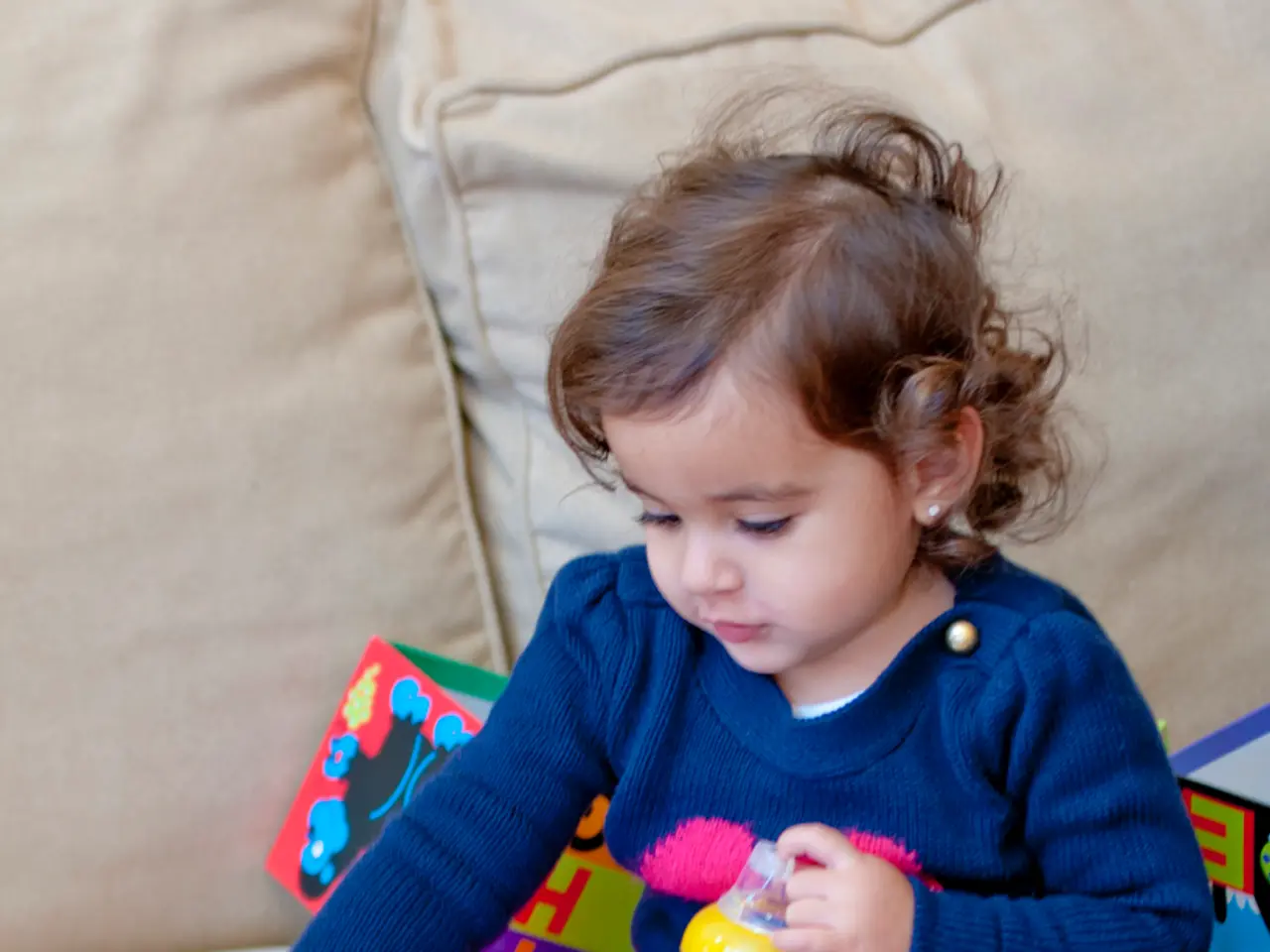Infants Display Remarkable Adaptability in Their Approach to Learning and Adaptation
In a groundbreaking study published in the journal Science Advances, researchers led by neuroscientist Francesco Poli at the Donders Institute have found that eight-month-old babies demonstrate remarkable flexibility in adapting their learning strategies to changing environments [1][2][4].
The study involved showing babies a screen displaying a colorful monster, which appeared on either the left or right side of the screen. The location of the monster remained either stable or changed frequently during the study [3]. Using eye-tracking technology, the researchers found that babies not only learned where the monster was likely to appear but changed their looking behavior dynamically when the environment shifted [1][2][4].
For instance, when the monster's location became unpredictable, babies updated their predictions and learning strategies accordingly, showing flexible cognitive adaptation [1][2][4]. This ability to estimate volatility varied significantly across infants, suggesting that early differences in the ability to adapt to change may have profound implications for long-term cognitive and psychosocial development [2].
Moreover, this flexibility in learning was linked to physiological responses. Measurements of pupil size indicated how babies felt uncertainty or surprise in reaction to environmental changes. Larger tonic pupil size before seeing the monster suggested heightened uncertainty, while phasic pupil responses after the monster appeared reflected surprise and helped map their learning behavior. This indicates an early form of metacognitive awareness, where babies monitor their confidence in predictions and adjust learning efforts [2].
Regarding links to emotional development, while the studies mostly focus on cognitive learning flexibility and physiological markers of uncertainty, these adaptive learning mechanisms likely intersect with emotional processes. The infants’ sensitivity to environmental stability and surprise could relate to their developing emotional regulation and understanding of safety versus unpredictability. As babies learn to anticipate and respond to changes, they also build foundational emotional skills such as managing expectations, coping with uncertainty, and experiencing curiosity or anxiety in new situations. These early cognitive-emotional interactions set the stage for more complex emotional development and social learning later on, as infants engage with caregivers and peers through play and exploration [3][5].
Parents were asked to complete a questionnaire about their baby's response to new situations as part of the study. The findings demonstrate that infants actively adapt to environmental change, offering early clues to the developmental origins of adapting to change in humans. This research suggests that even very young children can update their expectations and modify their focus in real time, challenging the prior belief that they passively absorb information.
References: [1] Poli, F., Hunnius, S., & Thelen, E. (2021). Volatility-driven learning in human infants. Science Advances, 7(31), eabf3988. [2] Hunnius, S., Poli, F., & Thelen, E. (2021). Infant learning is shaped by environmental volatility. Current Biology, 31(17), R944-R945. [3] Hay, N., & Jarvis, S. (2021). Emotion regulation in infancy: Developmental, individual differences, and neurobiological perspectives. Infant Behavior & Development, 57, 101532. [4] Thelen, E., & Smith, L. B. (1994). A dynamic systems approach to the development of cognition and action. Cambridge, MA: MIT Press. [5] Lewis, M., & Ramsay, D. (2005). An attachment-based approach to emotion regulation. Infant Mental Health Journal, 26(3), 271-286.
- In the realm of health-and-wellness, the link between neuroscience and early life experiences, such as the study on eight-month-old babies demonstrating adaptability to changing environments, could potentially shed light on the roots of anxiety and depression in adulthood.
- The neural mechanisms governing adaptability in infants, as observed in the study on babies' responses to a screen displaying a monster, may serve as a foundation for future research in neuroscience news, providing insight into the science of managing anxiety and depression.
- The findings of the study that shows babies adapting to unpredictable environments indicate that health-and-wellness interventions early in life, possibly focusing on neuroscience-based techniques, might help children develop effective strategies for dealing with anxiety and depression as they grow older.




